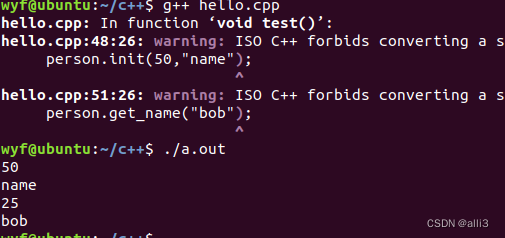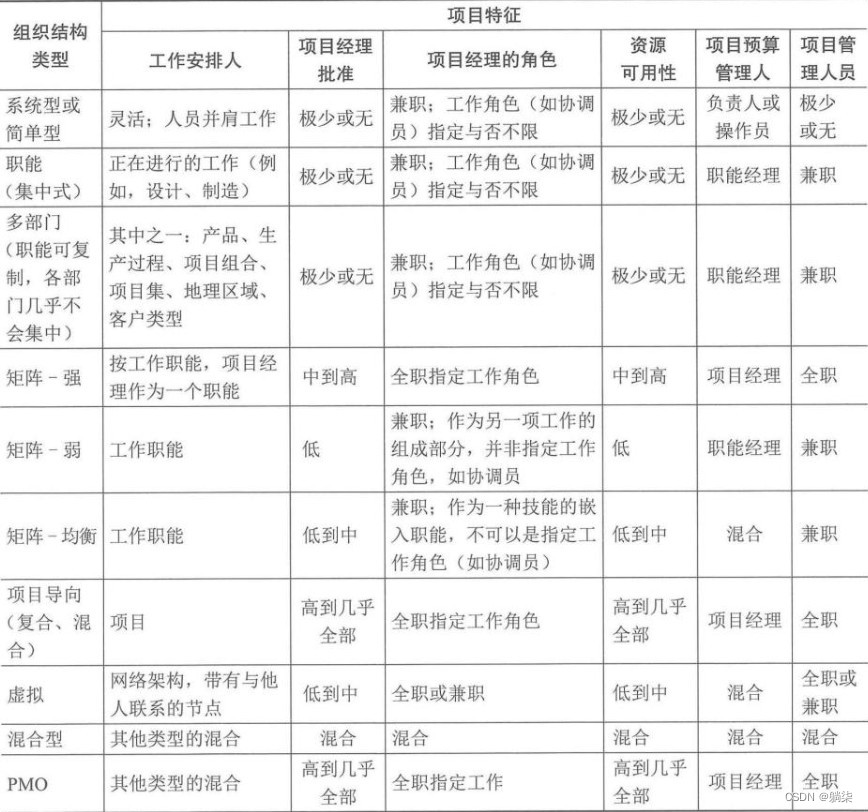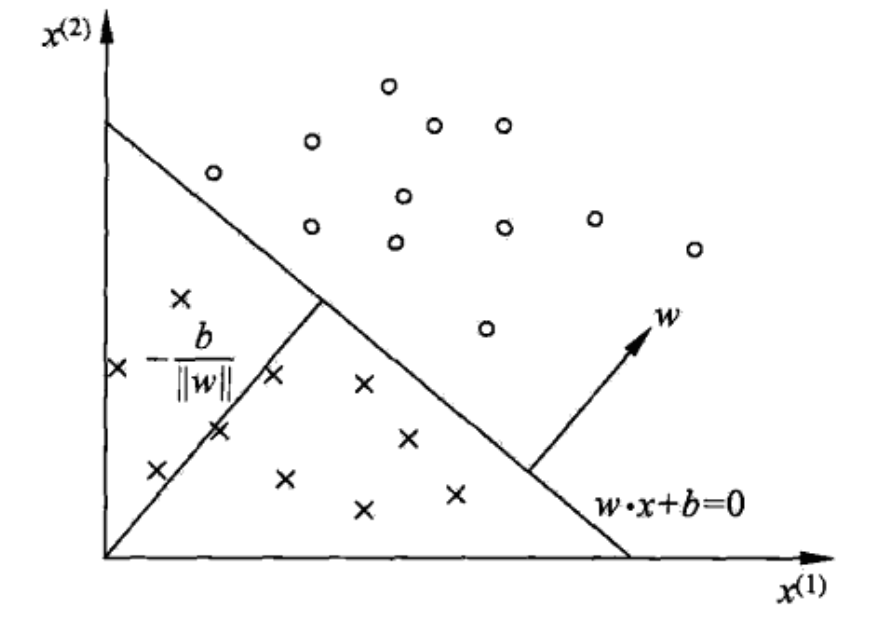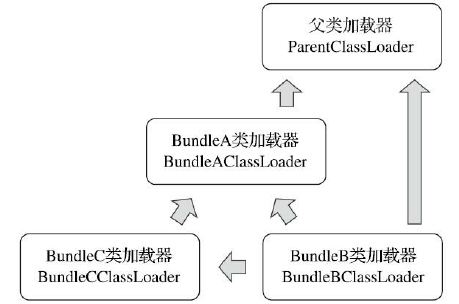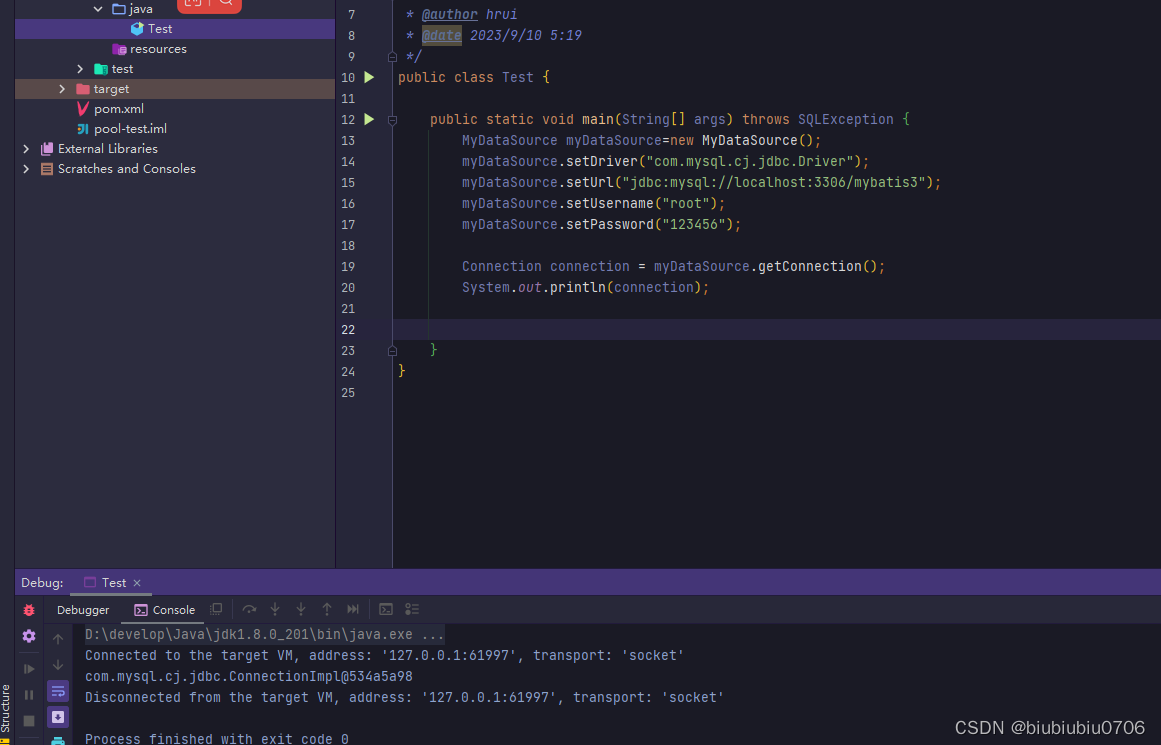目录
c和c++中结构体的区别
类的封装
c语言中的行为和属性封装存在的问题
c++中对事物的封装——类的封装
尽量将成员变量设置为private
代码示例
c和c++中结构体的区别
c语言中struct只有变量,不能存放函数,也就是数据(属性)和行为(方法)是分离的
c++中结构体是可以存放函数的,也就是数据(属性)和行为是封装在一起的
struct _stu() //c
{
int a;
int b[5];
};
struct _stu()//c++
{
int a;
int b[5];
void peintf_stu()
{
cout << a << endl;
}
};
类的封装
c语言中的行为和属性封装存在的问题
现实世界的事物所具有的共性就是每个事物都具有自身的属性,一些自身具有的行为,所以如果我
们能把事物的属性和行为表示出来,那么就可以抽象出来这个事物。比如我们要表示人这个对象,在 c 语言中,我们可以这么表示
:
#include <iostream>
#include <string.h>
using namespace std;
struct Person{
char name[64];
int age;
};
struct Animal{
char name[64];
int age;
};
void PersonEat(struct Person* person){
printf("%s 在吃人吃的饭!\n",person->name);
}
void AnimalEat(struct Animal* animal){
printf("%s 在吃动物吃的饭!\n", animal->name);
}
int main(){
struct Person Person;
struct Animal animal;
strcpy(Person.name, "小明");
PersonEat(&Person);
strcpy(animal.name, "dog");
AnimalEat(&animal);
return 0;
}
在
c
语言中,行为和属性是分开的,那么万一调用错误,将会导致问题发生。
从这个案例我们应该可以体会到,属性和行为应该放在一起,一起表示一个具有属性和行为的对象。
c++中对事物的封装——类的封装
c++将行为和属性封装在一起
类和结构体的区别在于 类对成员可以进行访问的权限控制,结构体不可以
| 访问属性 | 属性 | 对象内部 | 对象外部 |
| public | 公有 | 可访问 | 可访问 |
| protected | 保护 | 可访问 | 不可访问 |
| private | 私有 | 可访问 | 不可访问 |
类中的函数 可以直接访问类中的成员
class Person{
//人具有的行为(函数)
public://公有的
int mTall; //多高,可以让外人知道
protected://保护的
int mMoney; // 有多少钱,只能儿子孙子知道
private://私有的
int mAge; //年龄,不想让外人知道
void show()
{
cout << mTall <<"";
cout << mMoney <<"";//内部可访问
cout << mAge <<"";//内部可访问
}
};
int main(){
Person p;
p.mTall = 220;
//p.mMoney 保护成员外部无法访问
//p.mAge 私有成员外部无法访问
p.Dese();
return EXIT_SUCCESS;
}
保护的和私有的区别是 保护的子类可以访问 私有的子类不可访问
尽量将成员变量设置为private
成员变量设置为私有的,优点
对变量的设置时的控制
可以给变量设置制度权限
可以给变量设置只写权限
可以给变量设置可读可写权限
class AccessLevels{public ://对只读属性进行只读访问int getReadOnly(){ return readOnly; }//对读写属性进行读写访问void setReadWrite( int val){ readWrite = val; }int getReadWrite(){ return readWrite; }//对只写属性进行只写访问void setWriteOnly( int val){ writeOnly = val; }private :int readOnly; // 对外只读访问int noAccess; // 外部不可访问int readWrite; // 读写访问int writeOnly; // 只写访问};
代码示例
#include <iostream>
#include <string.h>
using namespace std;
class Person
{
public:
void init(int init_age,char *init_name)
{
if(age >= 0 && age <= 100)
{
age = init_age;
}
if(init_name != NULL)
{
strcpy(name,init_name);
}
}
void get_age(int get_age)
{
if(age >= 0 && age <= 100)
{
age = get_age;
}
}
void get_name(char *get_name)
{
if(get_name != NULL)
{
strcpy(name,get_name);
}
}
void set()
{
cout << age <<" "<<endl;
cout << name <<" "<<endl;
}
private:
int age;
char name[8];
}person;
void test()
{
person.init(50,"name");
person.set();
person.get_age(25);
person.get_name("bob");
person.set();
}
int main()
{
test();
return 0;
}
编译运行
